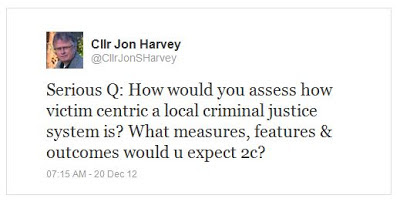Thus begins what can only be described as fatuous rant against the police, fire and highways agency officers (and possibly others who were there too) who attended the incident and performed a very difficult but professional job.
This article was published on the 27 December, before the dead had even been buried.
I struggle to find the words to describe how appalled I am by this article. @NathanConstable has written a fine and restrained blog about the article and I commend his piece to you. It is measured and factual, explaining probably what happened and just why the road had to be closed for so long.
In truth, I expect very little from Richard Littlejohn. But this article sinks lower than many other pieces I have read of his. To repeat, this article was written and published before the two small children and their Auntie had even been buried. I know this because a friend of mine went to the funeral yesterday. (My friend is a thoroughly decent public servant who, without even questioning I am sure, has given up much of his Christmas holiday to be with the family.)
But what worries me even more, are the comments left on the article's website by members of the public. Here are the two which received the highest numbers of positive ratings:
Good article as usual Rich, we are all fed up with the self importance of these public servants closing down motorways unnecessarily for hours on end. (+rating of 863)
So true, the police are coining the overtime while strutting about like pipsqueak Mussolinis. No wonder they've lost the support of decent people who see this but zero action on real crime (+rating of 514)And here are two which received the highest numbers of negative ratings:
Does anyone really think the police and other services wanted to be there on Christmas Day? Especially when fatalities happened! I strongly suspect they wanted to be at home eating turkey with their families, like most of us. They all do an amazing job and are very brave. DM - don't write about this rubbish again please! (-rating of 456)
What a vile piece of writing.... No compassion at all ....shut up (-rating of 421)What does this say about our society that such comments receive the positive and negative ratings that they did. We have a problem, Houston... if public feel this way about the police and fellow emergency services.
I really cannot believe somebody is using a fatal road traffic accident to have yet another stab at the Police. Do you know how Accident Investigation works? If it were members of your family involved, would you not be asking the Police questions, like how fast was the car going, was it driver error, what other evidence do they have for the reason for the crash? Was there a problem with the car? Alot of these things have to be done before the vehicle is moved. You'd all be quick enough to jump, and criticise them, if they were unable to give you the answers. It takes time to investigate an accident, if you were late for your Christmas Dinner, so what, at least you got there (-rating of 283)
I look forward to strong and positive leadership from the PCCs involved (that would be the Thames Valley and Staffordshire ones) declaring their sincere condolences to the family involved and asserting the valuable, professional and difficult jobs that the police and partners do. (There is nothing as yet on the Thames Valley PCC site nor on the Staffordshire site yet either.)
But all of us have a responsibility, I believe. We can all explain to our family, friends and colleagues about the complex and difficult tasks faced by public servants almost everyday of the week. I hope this blog adds to that.






